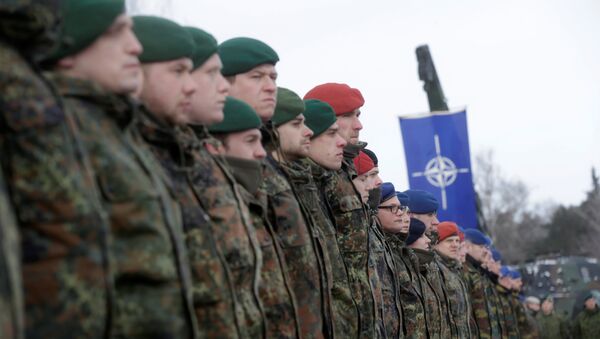Germany’s former vice-chancellor and foreign minister Sigmar Gabriel Germany has suggested that Berlin should invest over $200 billion annually in defending Poland and the Baltic States from the so-called Russian "threat" in an interview with Svenska Dagbladet. According to him, Europe cannot trust the US with the task.
“We have to realise that the world is changing. The world order that has existed since World War II has been very convenient, especially for us, Germans. We could deal with our own matters, while the US and the French to some extent tackled other issues. It is not like this now”, Gabriel said.
According to the former foreign minister, Donald Trump, who has called into doubt Article 5 of the Washington Treaty, meaning that an attack against one NATO member is considered as an attack against all members, is not the only problem. According to Gabriel, Washington has long been trying to shift the responsibility over to Europe.
Gabriel also expressed his opinion on Trump’s calls to raise defence spending to meet NATO’s 2 percent of gross domestic product (GDP). He suggested that Germany, who spent around 1.2 percent of GDP on defence, increase the budget to 1.5 percent to upgrade the country’s armed forces, allocating the remaining 0.5 percent, or more than $200 billion dollars to a specially-created fund for “defending the Baltic States and Poland from Russia”. According to Gabriel, Berlin should take over the lion’s share of responsibility for the security of Eastern European states from the US.
READ MORE: Germany Wants to be 'Less Dependent' on US for Defence Needs — Academic
The Kremlin has repeatedly stated that Russia poses no threat to anyone, but will not ignore any potentially dangerous activities. On the contrary, Moscow has voiced alarm over NATO’s unprecedented activities and its expanding presence in the region, citing the alleged “Russian threat”.
NATO has considerably beefed up its presence near Russia since the 2014 Ukraine crisis, deploying battle groups, staging major exercises, and deploying reconnaissance aircraft and drones along the border. The alliance even agreed to the creation of a forward presence in the region in 2016 at a Warsaw summit. The UK, Canada, Germany, and US-led multinational “Battle Groups” are part of NATO's enhanced Forward Presence (EFP) in Eastern Europe.


